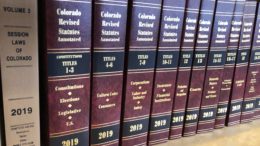Recommit to transparency during COVID-19 pandemic, CFOIC and other groups urge governments
The Colorado Freedom of Information Coalition joined 131 other transparency-minded organizations in urging state, local and tribal governments across the United States “to recommit to, and not retrench from, their duty to include the public in the policy-making process, including policies relating to COVID-19 as well as the routine ongoing functions of governance.”









